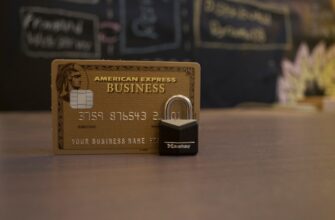Introduction
In the rapidly evolving world of cryptocurrency, protecting your private keys is non-negotiable for asset security. As regulations tighten, many users seek ways to protect private keys without KYC (Know Your Customer) to maintain anonymity and avoid centralized risks. This 2025 guide explores practical, future-proof methods to safeguard your keys independently, ensuring full control over your digital wealth. Whether you’re a privacy advocate or a crypto newcomer, learn how to secure your assets without compromising your identity.
Why Avoid KYC for Private Key Protection?
KYC processes require sharing personal details like ID and address with exchanges or services, creating vulnerabilities. Avoiding KYC when protecting private keys offers critical advantages:
- Enhanced Privacy: Prevents third-party tracking of your transactions and holdings.
- Reduced Hacking Risk: Centralized databases are prime targets for breaches; going KYC-free minimizes exposure.
- Regulatory Independence: Shields you from government oversight or asset freezes in uncertain regulatory climates.
- True Ownership: Ensures you—and only you—control your keys, aligning with crypto’s decentralized ethos.
In 2025, with increasing surveillance, these benefits make non-KYC key protection essential for long-term security.
Top Methods to Protect Private Keys Without KYC in 2025
Adopt these anonymous, effective strategies to secure private keys without KYC verification. Each method prioritizes user control and leverages 2025 advancements:
- Hardware Wallets: Offline devices like Ledger or Trezor store keys offline, immune to online hacks. Opt for open-source firmware versions to avoid backdoors.
- Paper Wallets: Generate keys offline using tools like BitAddress, print them, and store them physically in a safe. Use tamper-evident seals for added security.
- Open-Source Software Wallets: Choose non-custodial wallets such as Electrum or MyEtherWallet. Run them on air-gapped devices for zero internet exposure.
- Decentralized Custody Solutions: Utilize emerging 2025 tech like multi-party computation (MPC) wallets, which split keys among devices without third-party involvement.
- Mnemonic Phrases: Memorize or engrave seed phrases on metal plates, ensuring recovery without digital traces.
Always verify tools via community reviews and checksums to avoid malware—never input keys online.
Step-by-Step Guide: Securing Your Private Keys in 2025
Follow this actionable plan to protect private keys without KYC, incorporating 2025 best practices:
- Generate Keys Offline: Use an air-gapped computer to create keys via trusted open-source software. Disconnect from the internet entirely during this process.
- Choose Your Storage Method: Select hardware for frequent access or paper/metal for long-term holds. For hardware, initialize the device without connecting to any KYC service.
- Implement Multi-Layer Security: Combine methods—e.g., store a hardware wallet in a safe with a paper backup. Use biometric locks or PINs for devices.
- Secure Backups: Create multiple encrypted backups on USB drives or steel plates. Store them in geographically separate locations (e.g., home safe and bank vault).
- Regular Audits: Quarterly, verify backups and update software offline. In 2025, leverage quantum-resistant algorithms if available.
- Recovery Protocol: Share mnemonic phrases only via secure, in-person methods with trusted parties—never digitally.
This approach ensures robust protection against 2025 threats like AI-driven hacks or regulatory overreach.
FAQ Section
Q: Is it legal to protect private keys without KYC?
A> Yes, in most jurisdictions, self-custody of keys is legal. KYC applies to exchanges, not personal storage—always check local laws.
Q: Can I recover funds if I lose my non-KYC keys?
A> Only if you have backups like seed phrases. Without them, funds are irrecoverable—emphasizing the need for secure, redundant storage.
Q: Are hardware wallets safe from future quantum computing attacks?
A> Many 2025 models incorporate quantum-resistant features, but pair them with regular updates and offline storage for maximum safety.
Q: How do I avoid scams when setting up non-KYC protection?
A> Download software only from official sites, verify checksums, and use community-vetted tools. Never share keys or phrases online.
Q: Can I use decentralized exchanges (DEXs) without KYC in this process?
A> Absolutely—DEXs like Uniswap allow trading via non-custodial wallets, keeping keys private throughout.








